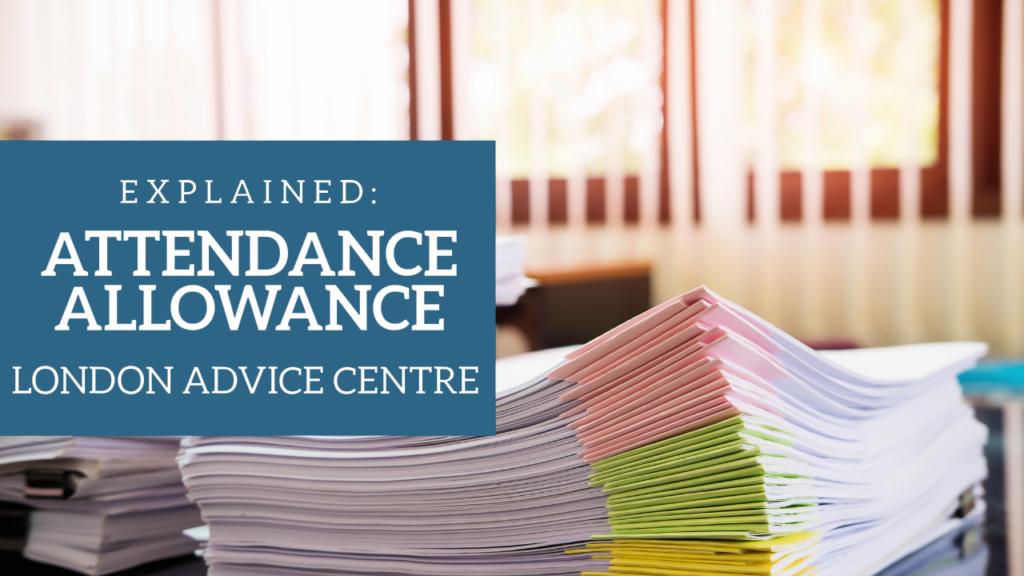
Attendance Allowance is a benefit for those who have reached State Pension Age need help with extra costs if they are severely disabled, to the point in which they need someone to help care for them. You do not have to have a person currently caring for you to apply for the benefit.
Eligibility
- State Pension Age or above – check you State Pension here
- You have a physical or mental disability, or both (sensory conditions are also included). You do not have to have a diagnosis to apply.
- Your disability means you need someone to care for you or supervise you. This could be for your own safety or the safety of others.
Care can take many forms such as personal care such as washing, dressing, toilet needs etc. Or it can be help with personal tasks which take you a long time or cause you pain.
- You have needed help for at least 6 months now (exceptions made for those who are terminally ill)
If you are terminally ill (not expected to live more than 6 months) there is no qualifying period for how long you’re had your disability/condition; you will also automatically receive the higher rate of Attendance Allowance.
- Be in Great Britain when you claim and have been for at least 2 of the past 3 years. You are habitually resident.
- Not subject to immigration control
This benefit is not means tested, therefore it doesn’t matter what your earnings or saving are. It doesn’t affect your State Pension (see our post on State Pension), is tax-free and exempt from the benefit cap. This means you won’t have any money deducted from this benefit or anywhere else. It is an extra sum to help support you and your needs.
Other Benefits
Attendance Allowance may also mean you’re eligible for other help such as council tax reduction, Pension Credit, and Universal Credit. If you already claim other benefits, you could be entitled to an increase in them once you’re Attendance Allowance claim is successful. Claiming Attendance Allowance can also help in your application for Blue Badge (helping you park nearer to where you’re going) or a Disabled Person’s Railcard.
If you already receive Personal Independence Payment (PIP) or Disability Living Allowance (DLA) you cannot get Attendance Allowance. Click the links for more information about these benefits.
Your carer might be eligible for Carer’s Allowance if your claim for Attendance Allowance claim is successful. They must care for you for over 35 hours weekly and earn less than £128 weekly. However, this might affect your ability to receive higher amounts of other benefits. Contact London Advice Centre on 020 3092 8211 for more information and a personalised consultation to understand your benefit better.
To claim Attendance Allowance, use the gov.uk website and fill the claim form out and mail it to them using the address provided; if you struggle to do this or need guidance on filling out the form please contact an adviser, London Advice Centre will be happy to help you. Find the form here.
Payment
Attendance Allowance pays every 4 weeks, but is calculated into 4 weekly payments, you’ll just get one lump sum. The lower rate is £60.00 weekly for those who need help day or night, and the higher rate is £89.60 for those who need help both day and night or you’re terminally ill.
Attendance Allowance can be backdated to the date you made the claim when it was officially received), but no before then.
Always ensure you report a change of circumstances as it will affect how much Attendance Allowance you can get, if you are overpaid you will have to repay it and you may be fined.
Please note: this post was written in line with guidance at the time of publishing. For the most up-to-date guidelines please refer to gov.uk